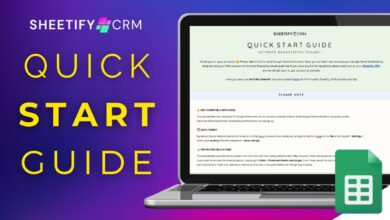Beyond Guesswork: How Regular Business Valuation Drives Clearer Decisions

Business valuation systematically determines a business or company’s economic value. This complex procedure involves an in-depth analysis of various factors, including financial statements, market conditions, and industry trends. Working with healthcare valuation firms can give organizations in niche industries like healthcare specialized insights designed to solve the opportunities and difficulties specific to their industry. Owners can plan for potential growth or sales in the future and make educated decisions by knowing the true economic worth of their company.
Importance of Regular Valuations
Conducting regular business valuations can bring a multitude of advantages. One primary benefit is an up-to-date understanding of the company’s worth, which is essential for strategic planning. This knowledge allows business owners to identify strengths and areas for improvement. Knowing the business’s value is invaluable, whether you are considering selling the business, merging with another company, or securing a loan from financial institutions. Regular business valuations act as financial health check-ups, clearly showing a business’s current status and future potential. This ongoing assessment can help business owners stay proactive and prepared for any opportunities or challenges that may arise.
How Business Valuation Works
The first step in the business appraisal process is to obtain thorough financial information, including balance sheets, profit and loss accounts, and cash flow statements. After collecting this data, various valuation models are applied to analyze the information. These models range from asset-based approaches focusing on the company’s tangible and intangible assets to market value methods considering comparable companies and recent sales data. Each model provides different insights, contributing to a well-rounded understanding of the business’s value. Business owners can achieve a more accurate and comprehensive valuation by employing multiple approaches, ensuring they have all the necessary information to make informed decisions.
Standard Methods of Business Valuation
- Asset-Based Approach: This method calculates the total value of the company’s assets after deducting liabilities. It’s beneficial for companies with significant physical and intangible assets. For example, a manufacturing company with valuable machinery and equipment would benefit from this approach.
- Market Value Method: This approach compares the company to similar recently sold businesses. It is beneficial for companies looking to understand their market standing. By examining comparable businesses, owners can gain insights into their competitive position and potential market value.
- Income Approach: This valuation method uses discounted cash flow (DCF) analysis to estimate the business’s future cash flows and profits. This approach concentrates on future earning potential and is especially pertinent for companies with steady and predictable revenue streams.
The best approach depends on the organization’s kind, scale, and sector. The proper valuation method ensures a more accurate and meaningful company value assessment.
Common Mistakes to Avoid
One common mistake is relying too heavily on a single valuation method. Utilizing multiple approaches ensures a more comprehensive perspective, providing a clearer understanding of the business’s value. Another error is paying attention to external market conditions, which can significantly impact valuation results. Awareness and adjustment for market conditions are crucial for an accurate valuation. Additionally, failing to update valuation data regularly can lead to outdated assessments that do not reflect the current business environment. Business owners can achieve more reliable and actionable valuation outcomes by avoiding these common pitfalls.
Choosing the Right Professional
Not all valuation professionals are created equal. Selecting a certified appraiser with a strong track record and positive client testimonials is crucial. Evaluating their qualifications, experience, and areas of expertise is essential to ensure they have the necessary knowledge to conduct a thorough and accurate valuation. Additional competency assurance can be obtained through board certifications, such as those from the National Association of Certified Valuators and Analysts or the American Society of Appraisers. Doing so ensures you’re working with someone with the skill and experience to deliver a credible and accurate business valuation, ultimately contributing to better-informed business decisions.



